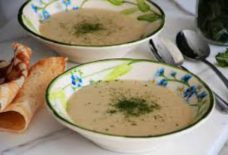Fort Hood and the Invisibility of Arab Americans
Arabs – both Christian and Muslim – began emigrating to the United States in appreciable numbers from the Arabic speaking world in the late 1800s. But too often their lives here are invisible, absent from national conversation, except in moments like the one we are living through right now in the wake of the tragedy at Ft. Hood. We tend to check in with this diverse community only when something goes “BOOM” in America or when someone of Arab or Muslim descent does something criminal.
It’s a shame because the Arab-American contribution stretches across the landscape and, significantly, into the U.S. armed forces. Consider Navy SEAL Mike Monsoor who threw himself on a grenade in Iraq on September 29, 2006. The device had landed among SEALs and Iraqi soldiers, and Monsoor absorbed the blast with his body, saving everyone’s life but his own. For his act of self sacrifice, he was posthumously awarded the Congressional Medal of Honor last year.
Then there’s Lance Corporal Abraham al-Thaibani of New York who enlisted with the Marines after his city was attacked on 9/11. On the day the World Trade Center towers fell, al-Thaibani ran through the streets of Brooklyn looking for his veiled wife to protect her from any potential backlash. He went to war in Iraq, a battleground chosen by American leaders for reasons that were unclear to him. He focused his efforts on seeing that every Marine he knew came home alive and tried to help Iraqi civilians where he could.
Abe’s brother followed in his footsteps, enlisting and serving in Fallujah. He won the Purple Heart for his service.
These men are just a few of the thousands of Arab Americans who are in the armed services or have served in U.S. forces over the years. Like other Americans in the service, their experiences have run the gamut from ordinary to valiant to the ultimate sacrifice.
Arab-American history is long and deep in the United States but Arab and Muslim Americans are not part of how we imagine who we are as Americans or how we perceive what makes up the American experience. Now, in the national discussion among commentators, politicians, and others in the aftermath of Ft. Hood, we can see the dangerous effects of Arab-American invisibility; in that vacuum, acts of a single individual, Major Hasan, cast a shadow of collective guilt on millions of Americans.
Timothy McVeigh warped the interpretations of the Constitution but we easily dismissed that without pondering whether there was inherent evil in the Constitution. The same cannot be said of how we view the relationship between the Koran and violent behavior – we unfairly blame individuals’ horrific acts on the teachings of the Koran. We ignore needed discussion of evident mental health issues, which were the focus when other service people have cracked and murdered their colleagues, and instead engage in lazy analysis about ethnic predilection of violence.
How can we move the conversation forward? If we knew more about the soldiers mentioned above and other Arab Americans, if their stories were familiar to us, if the origins of their names recognizable to us, how would the conversation be different?
While the murders at Ft. Hood and the resulting discussions show that the visibility of Arab Americans has yet to come into sharp focus, it also is a turning point that indicates that we have grown as a nation since 9/11. Eight years after the attacks, many Americans who are non Arab or Muslim – in the media, law enforcement and on the street – were immediately sensitive to potential backlash and spoke out. That says to me that we have begun to see Arab and Muslim Americans as a part of us, and that we realize that “us” is many things, from the murderous to the heroic to the ordinary.
Alia Malek
The Washington Post


